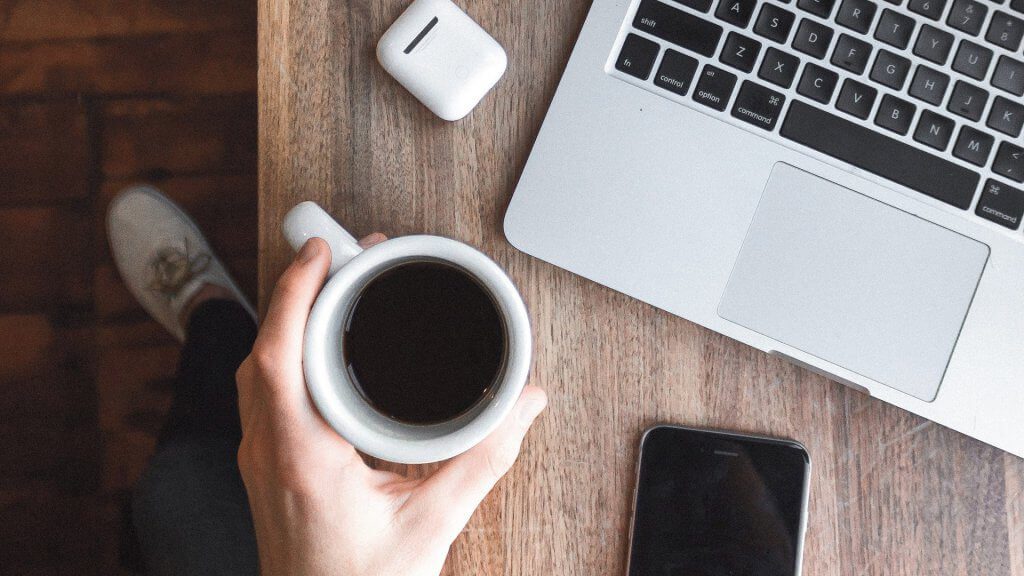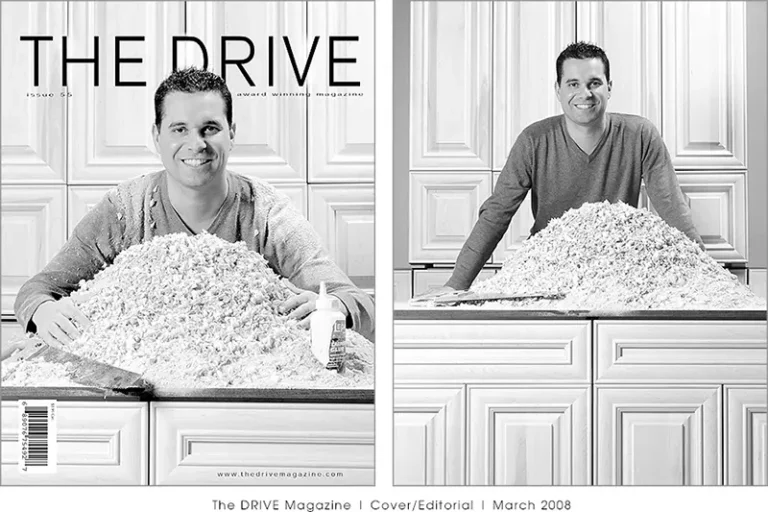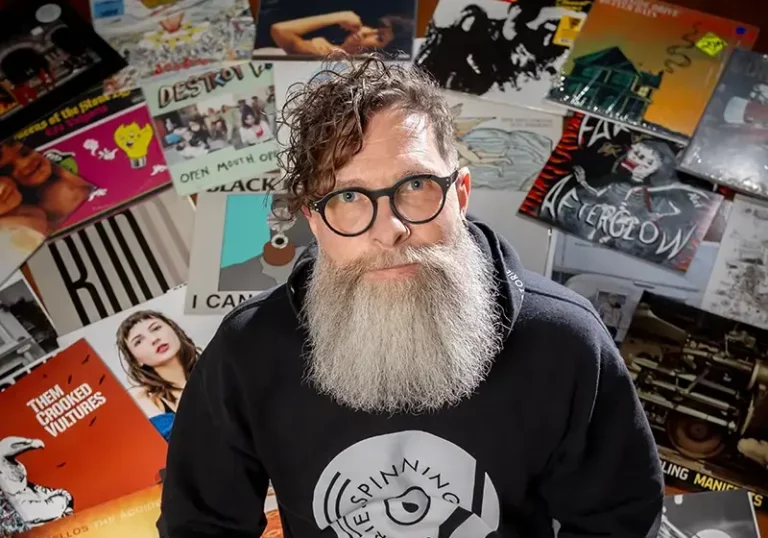My morning routine starts with the simple act of making coffee. It doesn’t take long for the coffee beans to awaken, and in that time I let my eyes slowly awaken with them. I breathe in the sweet cocoa and cherry notes and take in how I feel this morning. My hand twitches its way to my phone, but I resist for another two minutes. The grinds set into their place, and I settle into mine. When feeling this itch of sorts to get to work, I pick up my watering mug and begin filling my plants with their fuel for the day. This visualization of fuelling something else helps me tune in to how I can fuel myself. Today I could see an old friend or read an enchanting article—anything to make me feel unordinary and help me gain something new. Once I’ve set this intention, I migrate back to the kitchen to rejoice in my morning cup. I can sit down at my computer and am ready to take on my day. I feel full, and it only takes five minutes.
Our beginning moments are filled with routines that are perfect for us, and something that works for me isn’t necessarily going to work for you. But there is a common thread found in many of our mornings: the urge to check our social media pages. They have become a fabric of our daily routines—for some, they are part of their jobs—making them harder to ignore first thing in the morning. The dependency on social media as a ‘rise and shine’ routine is affecting our mental health and preventing us from finding those successful mindful minutes.
Instead of spending five minutes mapping out our days or focusing on our healthy breakfasts, we are disengaged and staring down at our screens within seconds of fluttering our eyes open. We all complain about the ‘lack of time’ in our days, but how much of that time is spent avoiding what is right in front of us, and escaping into the social realm?
We don’t feel the effects of social media right away, thinking it only takes up a few minutes of our morning routine. But as the first dose wears off, we find ourselves craving more. It’s a trickle-down effect, and as it drips further into our systems, the hungrier the monster gets.
Swansea University explored the effects on the human body when pulling away from social media and found that similar to those who use sedatives or opiate drugs, there was an increase in heart rate, blood pressure, reduced mood and increase of anxiety as people tried to withdraw from their technological addition. There is a physiological response to the lack of social media when it has been used throughout the day. The more we use it, the more dependent we become on it. Though the conclusions are still unclear, the prevalence of these withdrawal symptoms is hard to ignore.
Letting the social media candy into our daily routine is inevitable, but just as we’ve been taught that we shouldn’t have candy before dinner, letting social media in before we’ve taken some time for ourselves to rise naturally could be a recipe for hopelessness. An Italian study suggests that an early dose of social media can drip into all the wrong emotional spaces, making us more susceptible to negative feelings throughout the day.
Even though social media was created with the intention to be a connecter—a medium through which we can speak to anyone in the world at any time—it has become a space of social comparison. Why am I not on vacation like he is? Why are my friends out without me? We are trying to fulfill the basic human need for social connection, but instead are finding that the more time we spend on social media, the more we perceive ourselves to be socially isolated. If seen as a useful business tool or a “sometimes treat” like candy, social media is a wonderful addition to our lives—but does not serve as a meal or social replacement. In connecting with ourselves earlier in the day, we can kick-start our sense of productivity and find time for those meaningful in-person connections. Incorporating a strong morning routine will increase life satisfaction and help provide us with the tools to guide ourselves through the tough moments in our days. We are all busy, and the majority of us rely on the spare moments we have. So, how do we find a balance in our morning practice to connect, to fuel ourselves, and feel like we’re spending our time wisely? The answer is, it doesn’t take long. Just the equivalent of three Facebook Messenger checks and an Instagram scroll.
I sat with Teresa Mazzella, a busy entrepreneur who works as a soulful business strategist at Create a Soulful Life, who supports women to rediscover the essence of their soul to build their business foundation. She feels the same productivity tug-of-war within seconds of waking. Teresa wakes with the intention to journal or meditate, but there are mornings where she wants to abandon her practice too.
“I send emails, post on Facebook, check off my to-do list…” Her mind buzzes, but she stops herself, resets her focus and reminds herself, “How can I talk to other business owners about taking time for themselves, and not do it myself?
“It doesn’t have to be this 30- to 40-minute practice but it can be about setting that intention early in the day. If people do want to check the time or email, there’s nothing wrong with that. Just make the conscious choice after that to make time for yourself. I still have to work at it, and it’s a conscious effort. Even someone with a strong morning practice will have to work at it. There are some days where you will get sidetracked by life.
“Once I bring self-alignment into my day, I feel centred. Only when I am done my morning practice, I check my emails and go about my day.”
Social media can wait, but these five mindful morning minutes can’t. In the morning, our minds have hit the reset button, and aren’t tapped out yet. When we fill our early productive brain with excessive stimulants from social media, we open ourselves up to external triggers—ones that we may not be able to cope with. Understanding what our triggers are, how to manage them, and how to replace them with what serves our higher being is the most important learning moment in a morning practice. We can’t completely control what others post, but we can control how we choose to feel when we see those posts.
Filling our space with lovely mindfulness techniques is one way to learn about ourselves, according to author Jeffrey Brantley of Five Good Minutes: 100 Morning Practices to Help You Stay Calm and Focused All Day Long. He helps visualize the difference that five minutes can make for our days and motivates even the busiest people overwhelmed with responsibility to be mindfully present for a short period of time. The book’s effectiveness is found in the way Brantley targets the masses, because everyone has a different way of starting their day.
So what do you already do in your day that brings you joy, or that fuels you? What can make you feel like you can take on your day in just five minutes? Is it checking off the one item you have looming over you the second that you wake? Is it organizing your week, and setting yourself up for success?
Do what serves you first thing in the morning and with intention. This shift in perspective is sometimes all that we need to find purpose in our early moments. When we find what works for us and understand what both drives and depletes us, we will strive through our day.
How will you fuel yourself in your first five minutes?



